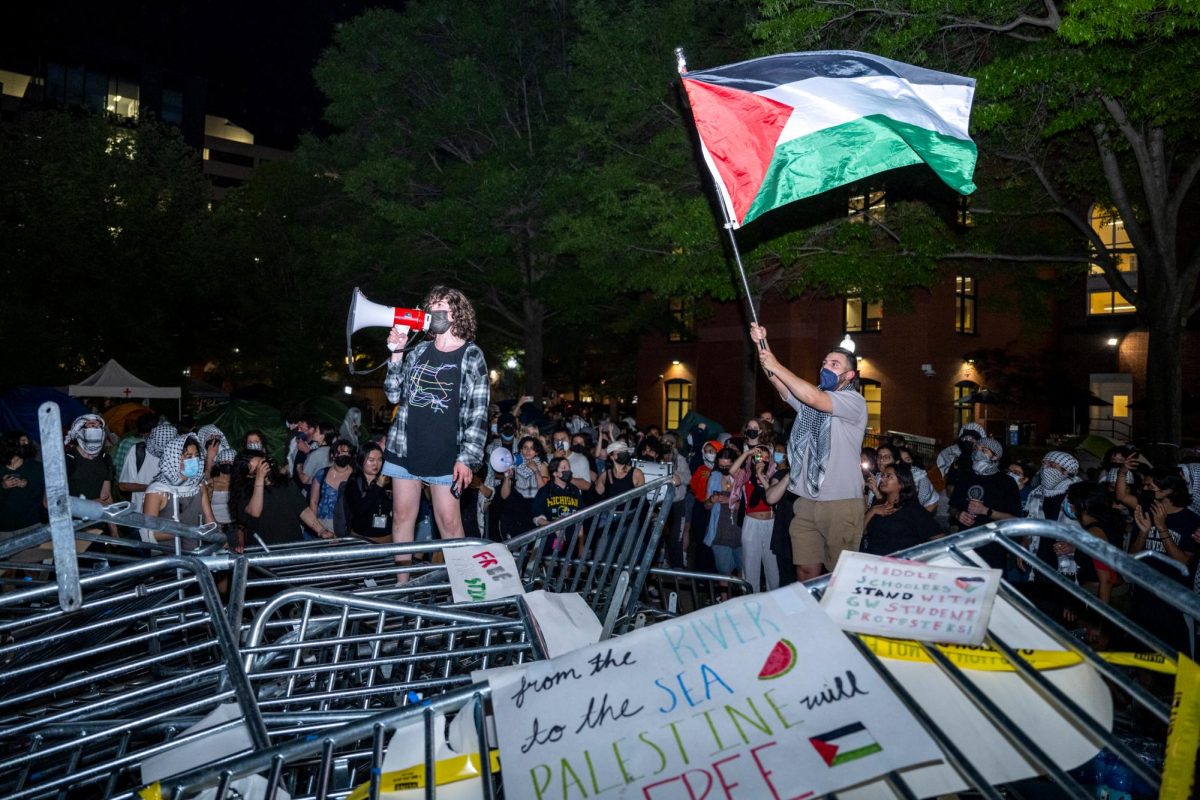At 7 p.m. on a frigid March night, Jean Barton climbs into the passenger seat of a white minivan that is overloaded with a sea of blankets, socks, hats, jackets and gloves. Within eight hours, all of these warm vestments will rest on the backs of D.C.’s homeless.
Barton is a supervisor at the United Planning Organization, and every night she rides the “Hypothermia Van” through the District, stopping to give clothes and transportation to impoverished residents battling the elements in the nation’s capital.
Wearing a backwards leather hat, Barton peers out the window looking for familiar faces – occasionally pausing to give directions to Darin Henry, the driver. Her clients, freezing men and women without homes, often have drug problems or mental disorders, she said.
“We talk to them and see if they need to be committed or are endangering themselves. The first thing you have to look at is their feet, though, because they are frostbitten and they can lose limbs,” Barton said.
She explained that despite the wintry temperatures, people who live on the streets are often afraid to accept clothes or a warm bed, and it can take years of offering help to gain their trust.
Though Barton works eight hours per shift, the Hypothermia Van patrols the city 24 hours a day. During the hot summer months the van is converted to a Hyperthermia Van, providing shade and water to the homeless suffering from heat-related difficulties. The program is funded through D.C. and various non-profit organizations.
One of the first stops is the West End Library, just north of Foggy Bottom, where several homeless men are sitting on the stairs. “Hypothermia van!” she exclaims, and within seconds he men arrive at the window to receive socks, gloves and donuts.
“People that don’t want to talk to you, they can be dangerous,” she said. “So you have to leave them alone.”
She added that it is important to try to talk to everyone, regardless of their condition.
“I keep a smile on my face. I’m walking with God as my protector, so you just have faith in Him and you know nothing is going to happen to you,” Barton said.
As she looks out the window, Barton reflects on her most memorable experience in her 25 years riding in the van. Seven years ago, she said, she picked up a man whose clothes were frozen to the ground and was dying of hypothermia. Though she saved his life, he now curses at her when she offers help.
“I used to sit around and wonder why they don’t want my help,” she said. “And after a while you get to know them, and they have a mental condition. That’s why they don’t want your help.”
At 8:30 p.m., the van pulls up to the Superior Court House, and Barton goes inside to speak with Pricilla, an elderly woman taking refuge from the cold. Barton has known Pricilla for many years and has repeatedly tried to convince her to sleep in shelters.
“She won’t go, because these guards are treating her so nice,” she said as she leaves the courthouse. “I looked at that lady and I wanted to scoop her up in this van!”
The District has more than 500 shelters where impoverished residents can live for free. Drug addicts, Barton explained, often risk their lives on the streets because they have to stay sober in shelters.
“That’s their business, what they do. We’ve got to service them,” she said, referring to the drug use. “They can’t take their pipes in (the shelters), and they aren’t going to give up their pipes.”
Soon the van pulls up to a large tent covered in snowy blankets located near the Greyhound bus station. Less than a block from a warm shelter, men inside the cold tent ignite lighters. Barton said later they were smoking crack.
A man – foam dripping from his mouth – eventually approaches the van and takes three pairs of gloves. When the van pulls away from what Barton calls “tent city,” she said the gloves will probably be sold for more drugs.
On 12th and G streets, a homeless man named Eugene Evans, 31, enters the van and asks to be taken to Adams Place shelter. Relaxing in the back of the warm van, he says he lives on the streets because there was too much drug use in his family’s house. The cold street, he says, is a better environment than his home – although staying in unpredictable shelters can sometimes be dangerous.
“Just being away from (my family) is better,” said Evans, who was the only person who accepted a ride to a shelter. “Ever since I left the area, it’s been better for me. When I was (at home), I was frustrated.”
Services such as the Hypothermia Van, Evans added, make the District a unique place to be homeless.
“It’s a lot of people from all over the United States,” he said of the indigent population in Washington. “And they say the service for the homeless (in D.C.) is better than any other state.”






